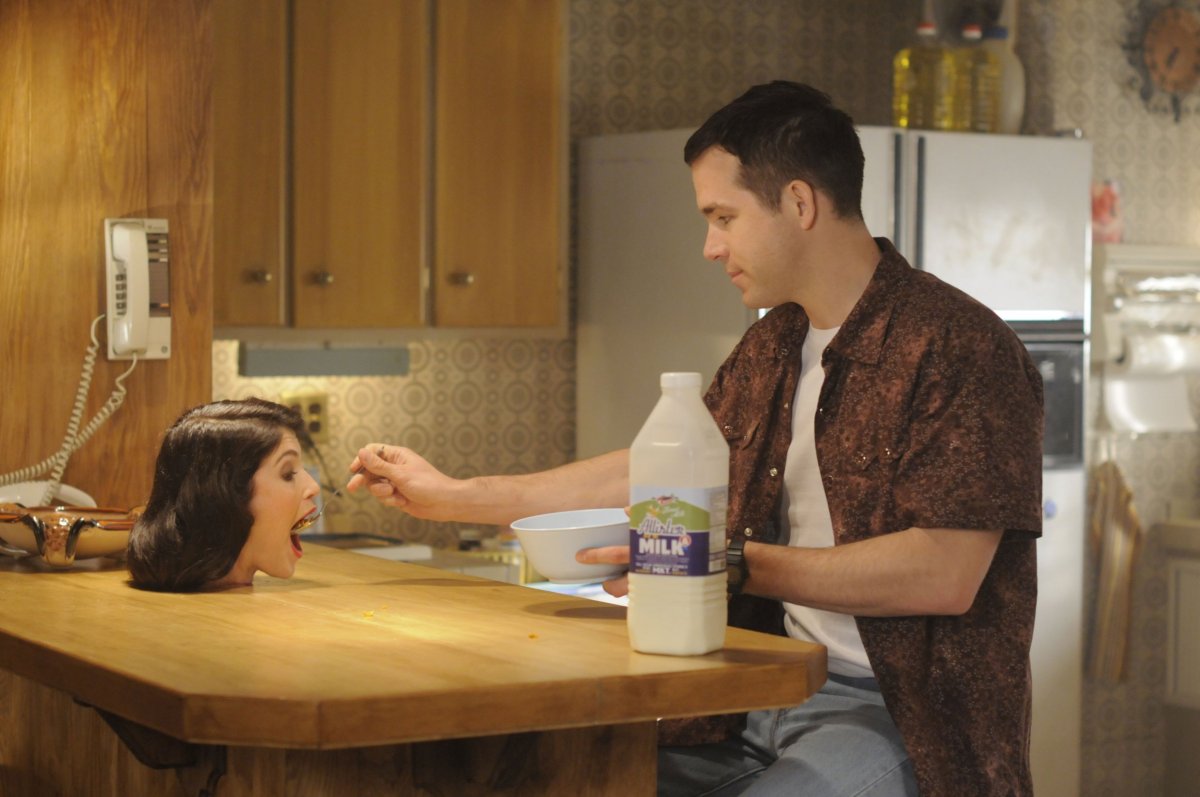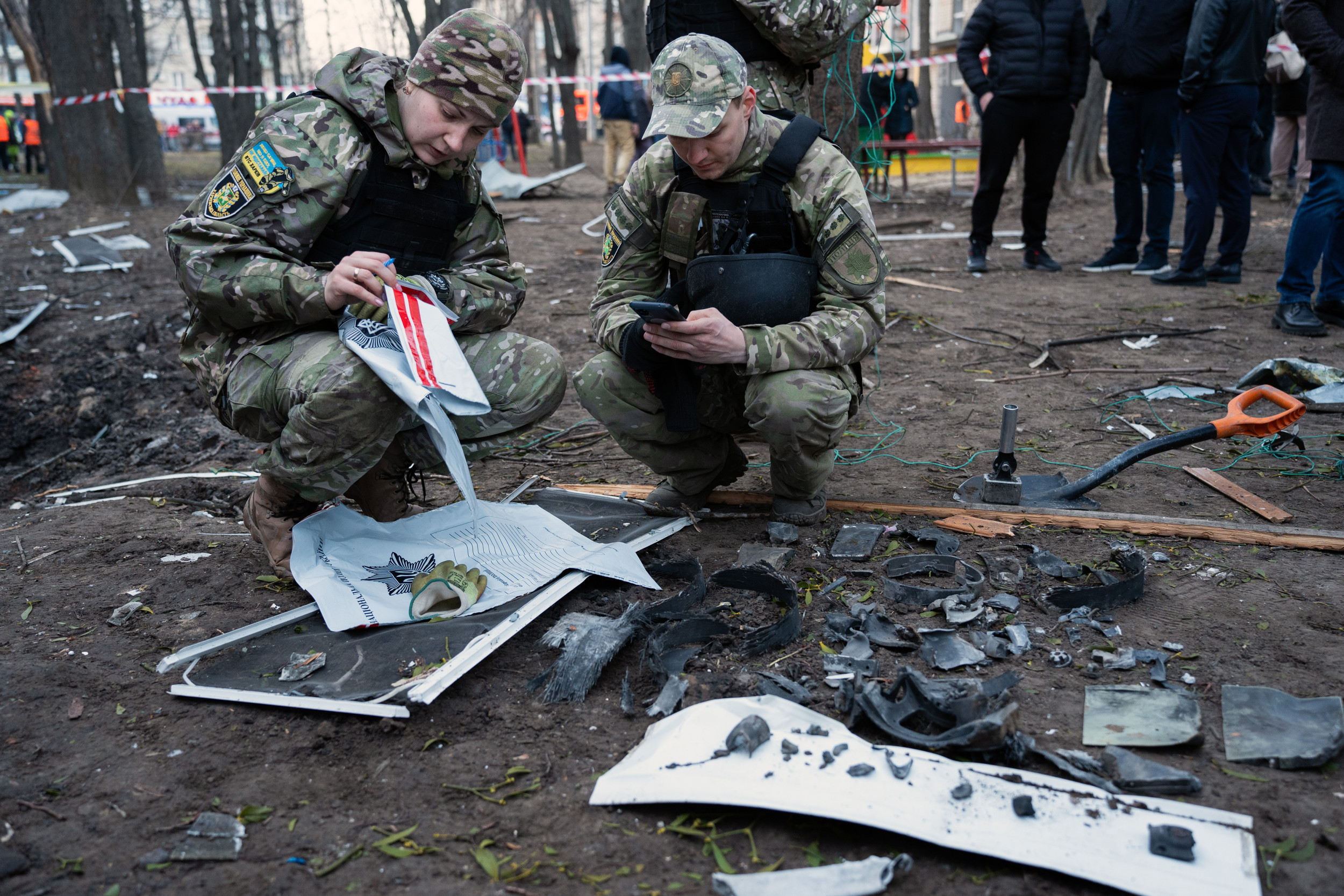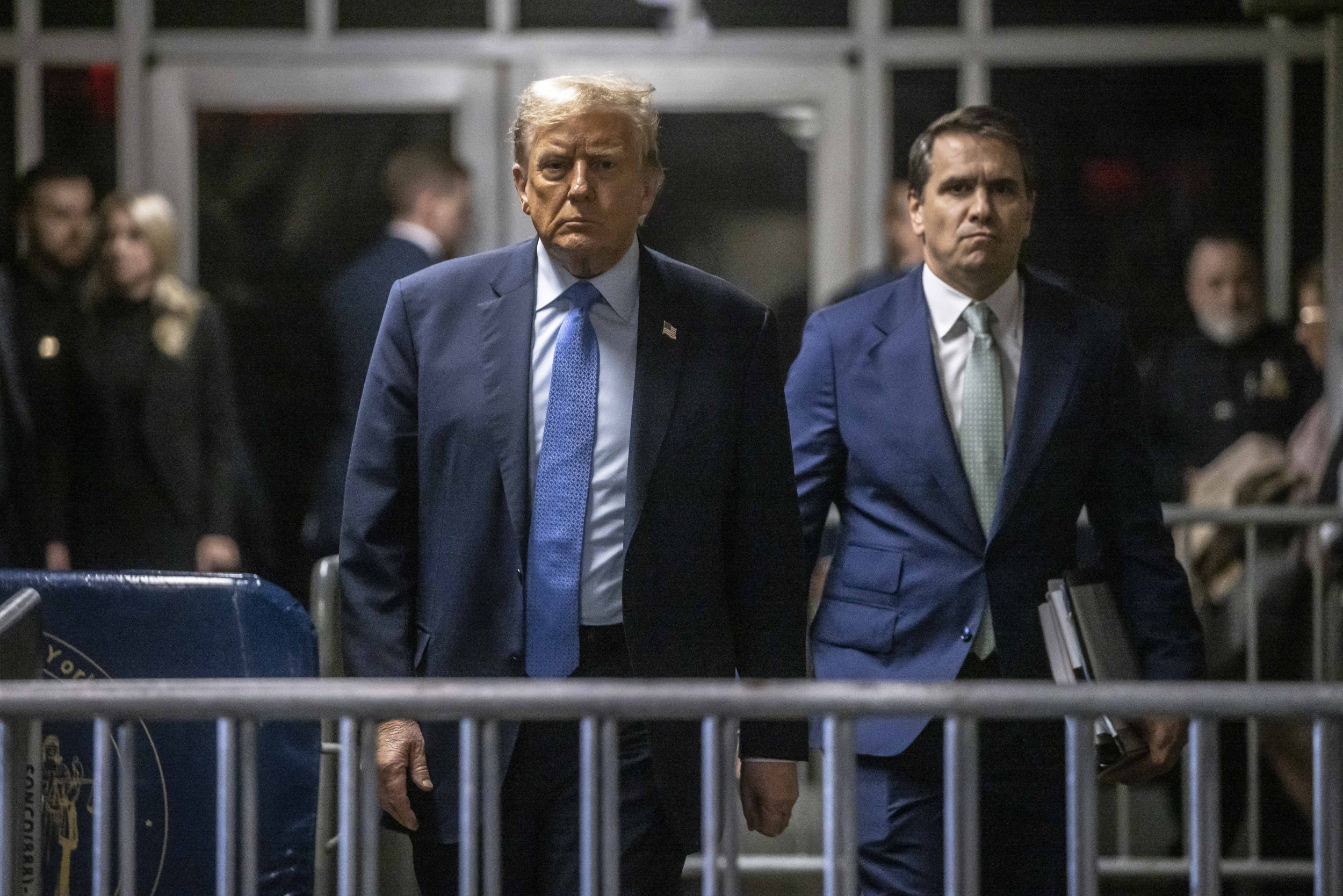
There are three angels in the Bible: Michael, Gabriel, and ...? Any ideas who the third might be? The answer, of course, is Lucifer.
Jerry, the hero of The Voices, throws in this little riddle as a conversation piece on his first date with Fiona, a colleague. He then goes on to run her through with a knife, disembowel her and pickle her innards in jars. From that moment on, the film spares no gory detail. Yet there are significant differences between The Voices and run-of-the-mill horror flicks – particularly in the filmmakers' use of perspective. Films like Psycho or Halloween revolve around the victims. Unbeknown to these characters (usually frail damsels) there is some mad killer lurking behind a bush and just waiting to pounce. Dread is instilled in the audience by never quite giving away which bush the crazed killer will leap from, while, naturally, multiplying the bushes. It's like going on a haunted house ride at the fairground: firmly strapped into your seat, you are rushed off into the dark. The dread becomes worse than anything you might actually find in there, and it is this simple, push-button method of creating suspense that is central to most horror films.
The makers of The Voices, however, dispensed with the victim perspective altogether. Instead, the viewer is transported into the warped mind of serial killer Jerry (Ryan Reynolds) who, unsurprisingly, sees the world somewhat differently to the rest of humanity. But far from perceiving the world as a dark, sinister place, his life is flooded with sunlight. Looking through Jerry's eyes, something as ordinary as fork-lifts circulating in a warehouse appears as a fantastical ballet acted out in perfect synchronicity. A grisly corpse dumped in the woods resembles a more buxom Snow White, and the sinister recesses of Jerry's own house look like the flashy interior of a fairy-tale castle. To make all this, the film was doctored in postproduction, creating a computer-generated world of bubble-gum colour.

This shift in perspective gives us to understand that Jerry is driven by a monstrous escapism. He prefers to ignore that girls find him too weird to date, and that he is stuck in a soul-destroying job in an American backwater. It's only natural that he refuses to take the pills prescribed by his doctor – awful things that shrink down the galaxy of his delusions, making everything seem small, dreary and normal. The film seems to suggest that the only way to cope with life in small-town America is to become a mad axe-murderer.
Unfortunately, this novel idea creates an uncertainty of tone that the film never comes to a decision about. On the one hand, The Voices has all the staple hacking and sawing of B-movie horror, and it really isn't for the squeamish: in one scene, Jerry stashes Fiona's head in his fridge. Later, that severed head is shown again, half rotten. But seen through Jerry's eyes, though, the head is that of the woman he loves, beautiful and alive. It speaks to him, demanding that he kill again. In moments like this, and when you also add in talking cats and dogs, the film veers far into the realm of spoof.
Some of the actors naturally find it hard to cope with not knowing whether they are in horror film or a parody. Ryan Reynolds sometimes seems to be auditioning for a part in a Jim Carrey movie. And though Gemma Arterton delivers a sound performance, her character Fiona, a British girl grounded in the flyover zone, is just a bit too displaced and implausible.
And even if the director, Marjane Satrapi, was so obsessed with getting the colours of Jerry's visions right that she lost sight of some of the more mundane parts of filmmaking, like deciding on a genre, she nonetheless deserves credit for creating something so strange and intriguing. Though my main question remains: what is it about the small-town USA? Can it really be that bad?
Uncommon Knowledge
Newsweek is committed to challenging conventional wisdom and finding connections in the search for common ground.
Newsweek is committed to challenging conventional wisdom and finding connections in the search for common ground.
About the writer
To read how Newsweek uses AI as a newsroom tool, Click here.








